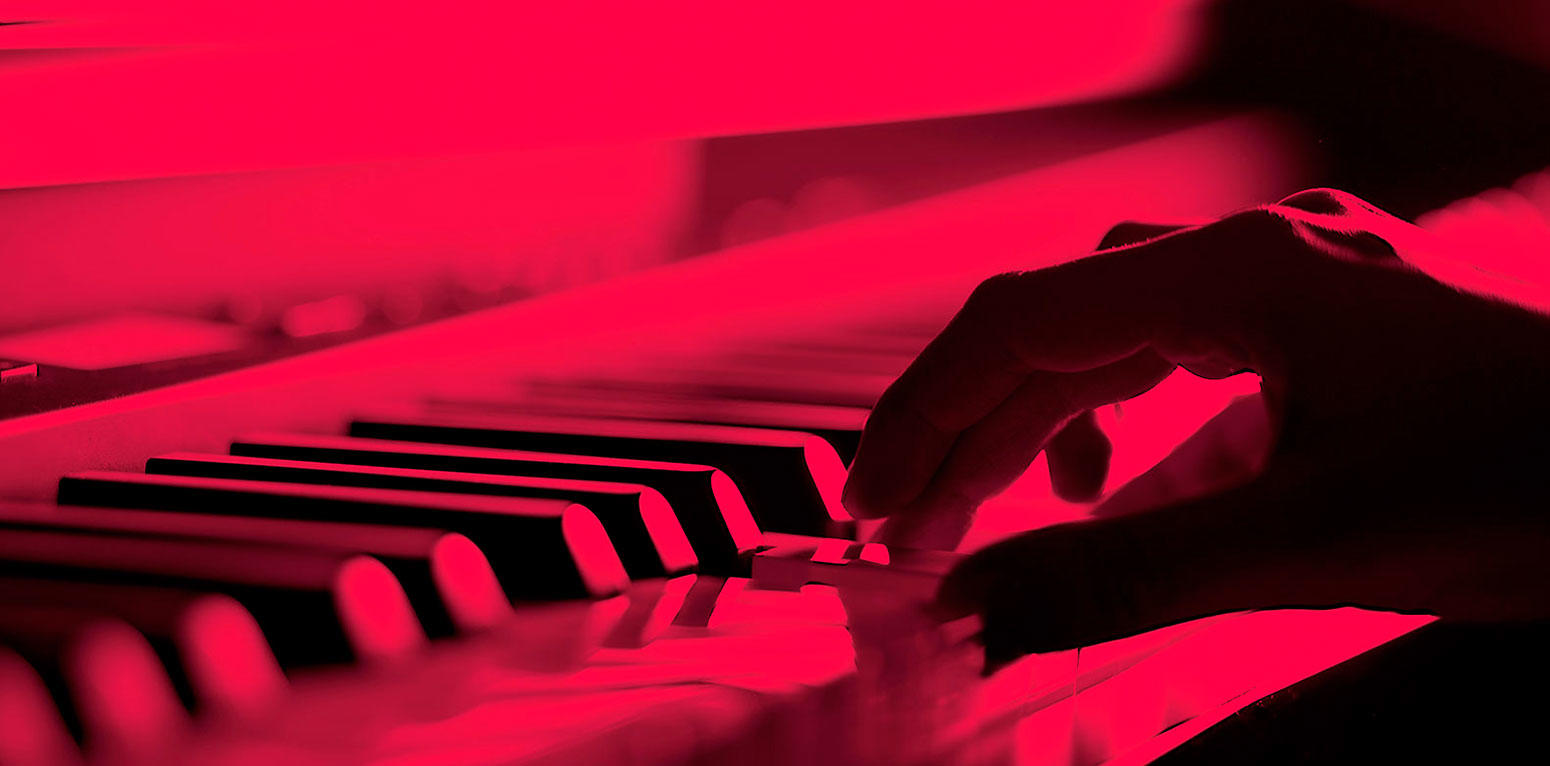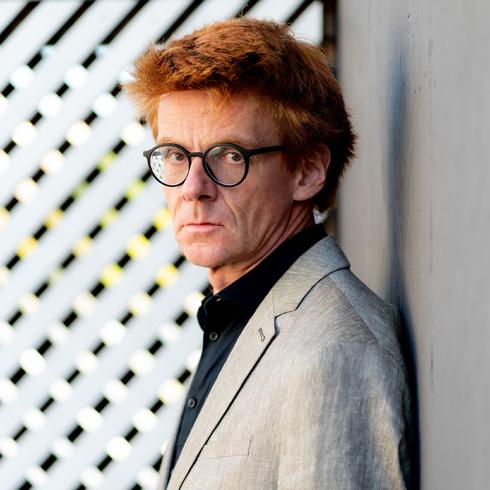
" Prozession "
Pour orchestre symphonique
Ed. Ricordi
2022 SELECTION
- Nominated for : The Musical Composition Prize 2024


© Harald Hoffmann
Enno Poppe (December 30, 1969, in Hemer, Germany) is one of the most important composers in Germany, based in Berlin since 1990.
Poppe studied conducting and composition at the Hochschule der Künste Berlin with Friedrich Goldmann and Gösta Neuwirth, among others. Additionally, he studied sound synthesis and algorithmic composition at the Technische Universität Berlin and at the ZKM Karlsruhe.
As a conductor, Enno Poppe regularly performs with Klangforum Wien, Ensemble Musikfabrik and Ensemble Resonanz as well as with international orchestras.
Since 1998 he also is member and conductor of ensemble Mosaik. Enno Poppe taught composition at the Hochschule für Musik Hanns Eisler Berlin, at Darmstädter Ferienkursen für Neue Musik and at Impuls Akademie (Graz).
Enno Poppe received commissions from ensembles all over Europe and abroad, Orchestras such as Helsinki Philharmonic Orchestra, Los Angeles Philharmonic Orchestra, WDR Sinfonieorchester, and festivals such as Donaueschinger Musiktage, Salzburger Festspiele, Musica Viva (München), Ultraschall Berlin, MaerzMusik (Berlin), Eclat (Stuttgart) and Wittener Tage für Neue Kammermusik.
Enno Poppe’s works have been performed by, among others, quartets such as Arditti Quartet and Kairos Quartet, conductors such as Pierre Boulez, Susanna Mälkki, Emilio Pomárico and Peter Rundel and orchestras such as SWR Sinfonieorchester, BBC Scottish Symphony Orchestra, Symphonieorchester des Bayerischen Rundfunks, Deutsches Symphonie-Orchester Berlin, hr-Sinfonieorchester Frankfurt and Junge Deutsche Philharmonie. Among the ensembles that regularly perform his music are Ensemble intercontemporain, Ensemble Modern, London Sinfonietta, Ensemble Resonanz, Klangforum Wien, ensemble mosaik, Ensemble Contrechamps, Musikfabrik, Ensemble 2e2m, SWR Vokalensemble and Neue Vocalsolisten Stuttgart.
With Interzone (2003-2004), Enno Poppe has created a composition for voices, video and ensemble where writer Marcel Beyer (who also created the librettos for the other music theatre works) paraphrases a text William S. Burroughs dealing with Tanger/Marocco, a melting pot of various cultures. The music theatre Arbeit Nahrung Wohnung (2006-2007) is a fragmented Robinson-Cruseo-Story about loneliness – and a protagonist who does not place a lot of value on getting rescued. In IQ (2011-2012), Poppe stages an intelligence test setting with various subjects in eight acts, “constantly returning to the beginning to start again”.
Enno Poppe received scholarships, amongst others from Akademie Schloss Solitude and Villa Serpentara in Olevano Romano. Awards include the Busoni-Kompositionspreis of the Akademie der Künste in Berlin (2002), the Förderpreis of the Ernst von Siemens Musikstiftung, the Schneider-Schott-Musikpreis (2005), the supporting award of the Akademie der Künste in Berlin (2006) and the Christoph- und Stephan-Kaske-Preis (2009). Enno Poppe also received the "Happy New Ears" prize of the Hans und Gertrud Zender-Stiftung (2011), the Hans-Werner-Henze prize (2013), and the Deutscher Musikautorenpreis 2016.
Enno Poppe is a member of the Akademie der Künste Berlin (since 2008), the Nordrhein-Westfälische Akademie der Wissenschaften und der Künste (since 2009) and the Bayerische Akademie der Schönen Künste (since 2010).
(Current as of March 2022)

Pour orchestre symphonique
Ed. Ricordi
2022 SELECTION

For ensemble
Publication : Ricordi Berlin
2024 SELECTION
In recent years, I have become very interested in the concept of expansion, which manifests itself in particular in a four works ensemble, lasting 50 to 80 minutes each : Speicher, Rundfunk, Prozession and Körper. Following these experiments on long forms, it seemed obvious to me to try to transpose them onto miniatures, to observe what happens when everything takes place in a restricted space.
Blumen ( Flowers ) consists of 15 movements of fifteen seconds to three minutes each. Some of these movements constitute real solos with accompaniment (like No. IX for trombone). Others are carried by melodies, others are organized around sequences of chords. Many pieces are made up of microscopic material, almost “grains of dust” like n°XV, or n°VI which seems composed out of fragments of lost melodies…
What interests me in the composition of miniatures, apart from the need to get straight to the point and find a center for each piece, is the question of beginnings and endings. Fifteen beginnings and fifteen endings, in a restricted space, present a formal device which has nothing to do with a normal formal process.
Blumen is not a set of variations, but rather an attempt to write pieces that are as clearly differentiated from each other as possible. Their coherence arises precisely from the constant formation of contrasts.
Unconsciously, without my wanting it, the relationship between the pieces grew more than I had initially imagined. It has nothing to do with a musical style, but rather with the way I think, listen and feel music: as something processual that I can watch grow and blossom.
—Enno Poppe

for orchestra
Editions Ricordi München
Enno Poppe studied conducting and composition at the Superior School of Arts in Berlin, with Friedrich Goldmann and Gösta Neuwirth. He continued his studies in the field of sound synthesis and algorithmic composition at the Technical University of Berlin and the Centre for Art and Media ZKM Karlsruhe with Heinrich Taube.
He received numerous awards (Berlin Senate for composition in 1992, 1995 and 1998, and Märkische Kulturkonferenz in 1994 in particular) and various prizes (Boris Blacher-Lieder for his Gelöschte in 1998, prizes for the City of Stuttgart Knochen in 2001, the Music Foundation Ernst von Siemens in 2001 (jointly with the Mosaik ensemble) and 2004, the Academy of Arts in Berlin in 2002 and 2006 .. .). In 1996, he participated in the Youth Forum of the GNM and studied at the Cité Internationale des Arts in Paris. In 1999, he was invited to the international seminar for composers at Boswil (Switzerland). From 2002 to 2004 he taught composition at the Academy of Music Hanns Eisler Berlin and in 2004, the Darmstadt summer courses.
His works are commissioned by world-renowned festivals such as Witten, Berlin, Donaueschingen, the Salzburg Festival éclat in Stuttgart, Musica Viva in Munich and the Munich Biennale. They are performed by the Ensemble Modern, the Klangforum Wien, Ensemble Mosaik, Contrechamps, musikFabrik and under the direction of conductors such as Stefan Asbury, Pierre Boulez, Martyn Brabbins, Emilio Pomarico, Kasper de Roo, Peter Rundel and Ed Spanjaard.
Since 1998, Enno Poppe is the music director of the Ensemble Mosaïk.
in 2001 he received a grant from the Foundation Wilfried-Steinbrenner (Berlin), and the following year a grant from the Academy Schloss Solitude (Stuttgart). In 2005 he was awarded the Schneider Schott prize.
Sources: Editions Ricordi, Munich and IRCAM
NOTICE
To compose, I do not need inspiration other than that inherent in the music. I can look under the microscope at the most dusty corner and always find things that are just mine. This is not a style but an observation technique.
The orchestra, is an old building with wooden floors and moldings, the non renovated facades are not much more beautiful than when they were painted apricot.
Enno Poppe
(Program Donaueschingen 2008)